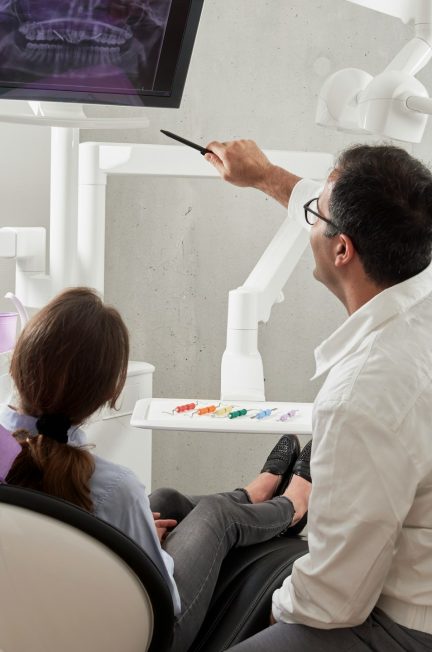Key Takeaways
- Dental health is crucial for children, and making it fun can result in lifelong good habits.
- Educational activities such as dental-themed crafts, songs, and games can make learning about oral hygiene enjoyable.
- Incorporating dental health into daily routines ensures children understand the importance of maintaining healthy teeth and gums.
Table of Contents
- Why Dental Health is Important for Kids
- Fun Dental Health Activities
- Dental-Themed Crafts and Projects
- Songs and Stories About Dental Health
- Interactive Games for Learning
- Incorporating Dental Health into Daily Routines
- Tips for Parents

Why Dental Health is Important for Kids
Maintaining good dental health from a young age helps prevent cavities, gum disease, and other oral health issues. Developing lifelong habits early on ensures children grow up with healthy teeth and gums, which can impact their overall health and well-being. Children with strong dental health issues are less likely to face tooth decay and gum disease, which can be both painful and costly to treat.
For neurodiverse patients in Los Angeles, CA, incorporating fun and educational dental activities can significantly affect their oral health routines and outcomes. Activities that cater to different learning styles can help these children better understand and engage with their dental care routines.
Fun Dental Health Activities
Making dental health fun can help children learn and retain important dental care habits. Educational activities like crafts, songs, and games can transform oral hygiene from a chore into an engaging experience. Engaging in these activities can make dental care entertaining and reinforce the importance of maintaining good oral hygiene practices in a child’s daily life.
Dental-Themed Crafts and Projects
- Tooth Fairy Craft: Creating a personalized Tooth Fairy box for lost teeth adds an element of excitement every time a child loses a tooth. This craft can be a fun family activity and help ease fears about losing teeth and dental visits.
- Dental Hygiene Chart: Making a chart to track daily brushing and flossing helps children visualize their progress and encourages consistent behavior. Offering rewards, like stickers or small prizes, for sticking to their routine can also motivate kids to keep up good habits.
- Model Mouth: Using clay or playdough to build a model of the mouth and teeth is a hands-on activity that helps children visualize and better understand the structure of their teeth. This activity can also provide a practical understanding of why certain teeth are important and how to care for them.
Songs and Stories About Dental Health
Songs and stories can be powerful tools for teaching children about dental health. For example, singing “The Tooth Brushing Song” during brushing time can make the process lively and fun, turning a mundane task into an enjoyable ritual. Reading books like “The Berenstain Bears Visit the Dentist” can help children understand the importance of dental visits and reduce any associated anxiety. These resources can make dental care more relatable and enjoyable, assisting children to form positive associations with their routines.
Interactive Games for Learning
- Brushing Timer Apps: Using apps that time brushing sessions with fun graphics and music can guide children to brush for the recommended two minutes. These apps often include characters and stories that engage kids, making it easier for them to follow through on their brushing routine.
- Dental Trivia: Playing trivia games that test knowledge about dental health facts can be enjoyable for the whole family to learn together. These games can include questions about the types of teeth, the importance of fluoride, and the consequences of poor dental hygiene, making learning interactive and fun.
- Healthy Teeth Hunt: Having a scavenger hunt for dental-related items around the house can familiarize children with the tools they will use for oral care. This playful activity can help children understand the purpose of these items and how to use them properly, reinforcing the importance of maintaining their dental health.
Incorporating Dental Health into Daily Routines
Consistency is key to maintaining good dental habits. It is essential that children brush and floss twice daily, use fluoride toothpaste, and have regular dental check-ups. Making these routines a family affair can encourage children to follow them. For instance, brushing and flossing together as a family can make the experience more enjoyable and less of a chore for kids.
According to WebMD’s guide on dental health for kids, starting these habits early can foster a lifetime of good dental health. This guide emphasizes the importance of early dental education and consistent practice, which can significantly reduce the risk of dental issues as children grow older.

Tips for Parents
Parents play a crucial role in their child’s dental health. Here are some tips to help encourage good dental care habits:
- Lead by Example: Children are more likely to follow dental routines if they see their parents doing the same. Demonstrating good habits, such as brushing and flossing regularly, can leave a lasting impression on children and encourage them to adopt these practices.
- Use Rewards: Positive reinforcement can motivate children to maintain their dental hygiene. Small rewards for consistent oral care, such as stickers or extra playtime, can keep children engaged and willing to follow through on their routines.
- Educate Early: Start teaching children about dental health early to instill good habits. Early education can significantly impact a child’s understanding of dental health. As noted by the CDC’s guidelines on children’s oral health, educating children about dental care early can help prevent cavities and other dental issues.
By integrating these fun and educational activities, parents can help ensure their children build strong, healthy teeth and gums for life. Engaging children in dental health activities that are both educational and fun can foster a positive attitude toward oral care, making it an enjoyable and rewarding part of their daily routine.
Photo by Caroline LM on Unsplash



